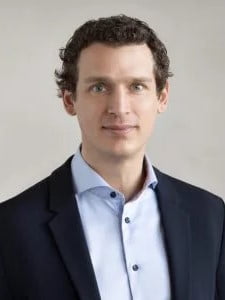
Dr. Schlader completed his physical therapy, medical and orthopaedic surgery training at the Université de Montréal in Quebec. After completing his residency training, he visited Gilles Walch in Lyon, France and Pascal Boileau in Nice, France, undertaking further training in shoulder replacement surgery. Both Walch and Boileau, world renowned thought-leaders in shoulder replacement surgery, had a major influence on Dr. Schlader’s practice, especially in relation to the reverse shoulder replacement, which was pioneered in France.
Dr. Schlader has developed a large practice in primary and revision shoulder replacement surgery, including complex revision procedures for patients with prior failed surgery for rotator cuff tears, shoulder instability, and shoulder arthritis. He was an early adopter of three-dimensional surgical planning for shoulder replacements. He also uses a patient specific approach that accounts for a patient’s unique anatomy when performing a shoulder replacement.
Dr. Schlader in one of the highest volume shoulder replacement surgeons in Quebec and has been asked to present his experience at provincial and national conferences. His surgical philosophy when performing shoulder replacement surgery is to maximize bone preservation using shorter uncemented implants or grafting techniques to optimize future options should a revision be required.
Dr. Schlader performs private shoulder surgery at the Centre D’excellence en Orthopédie de Montréal while working publicly at the St-Eustache Hospital on the north shore of Montreal. His team can perform shoulder surgery without the need for general anesthesia, using a nerve block with sedation, limiting the need for narcotics following surgery.
Dr. Schlader believes in a holistic approach to managing shoulder conditions, leveraging his past physical therapy training. He emphasizes the importance of core strength, postural control, and shoulder blade muscle coordination to address scapular dyskinesis during preoperative and postoperative rehabilitation. He also emphasizes the importance of nutrition, mindfulness meditation, and physical exercise on musculoskeletal pathology and pain. When not working, he enjoys multiple sports including skiing, stand-up paddle boarding, yoga, gymnastics, and calisthenics, which allow him to practice the techniques emphasized in his rehabilitation approach.